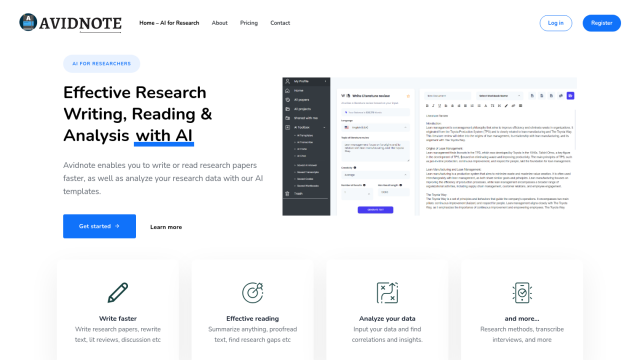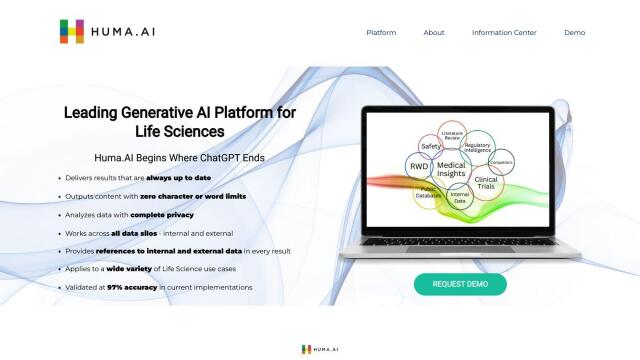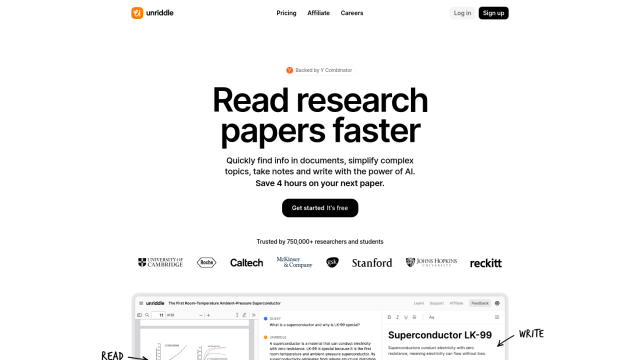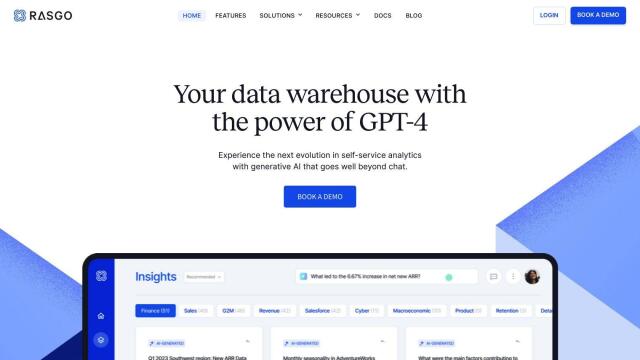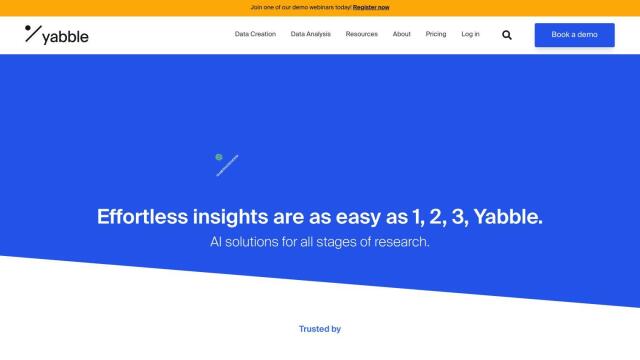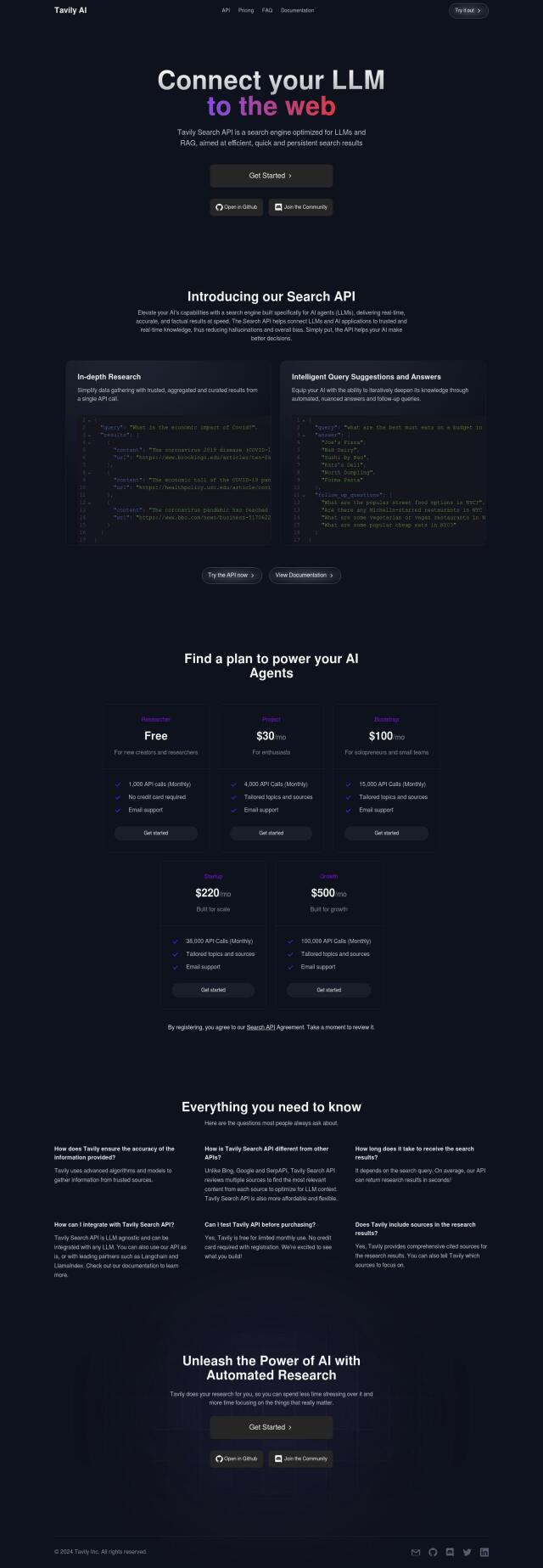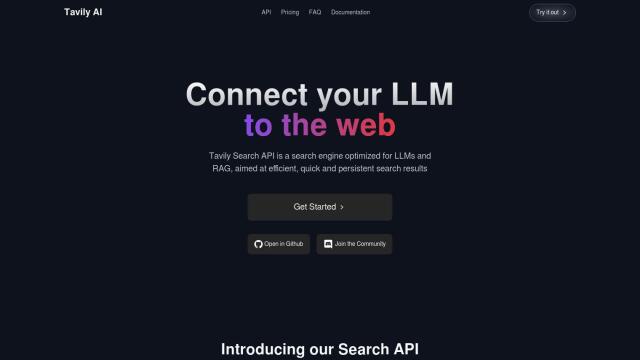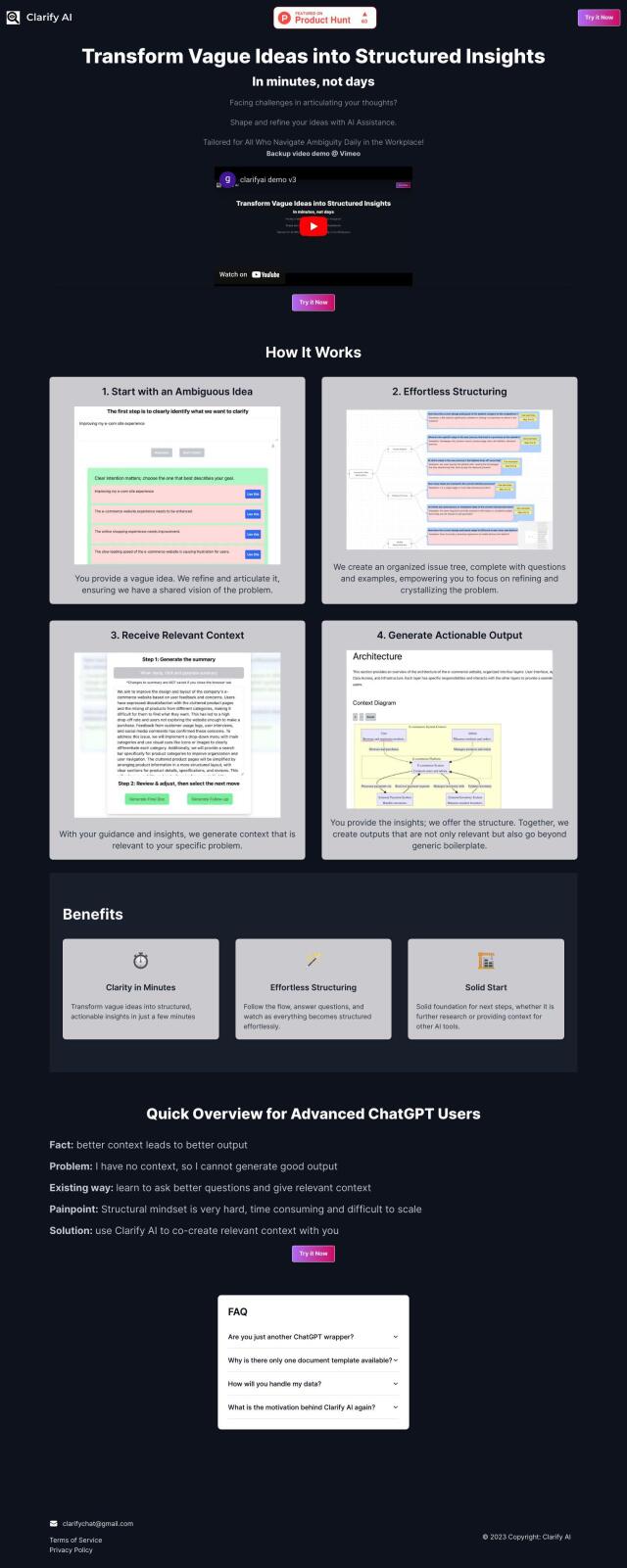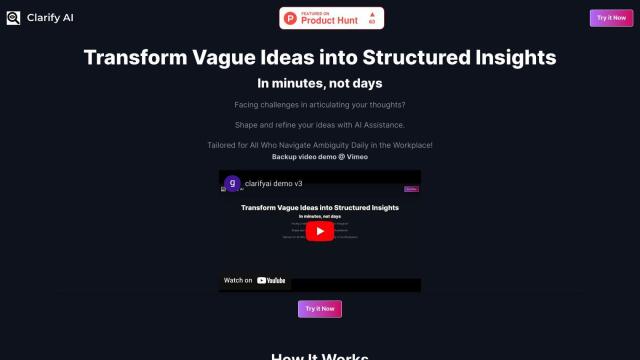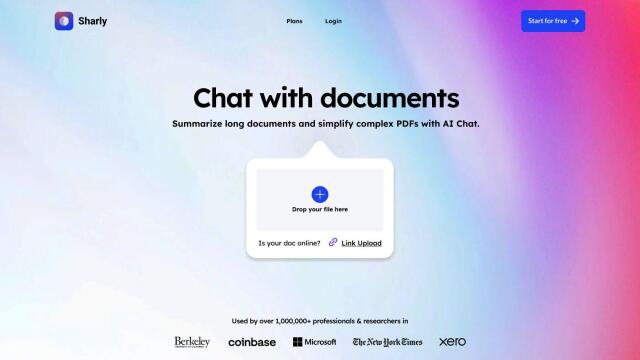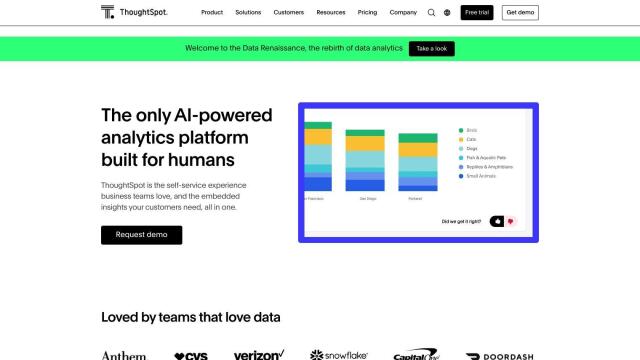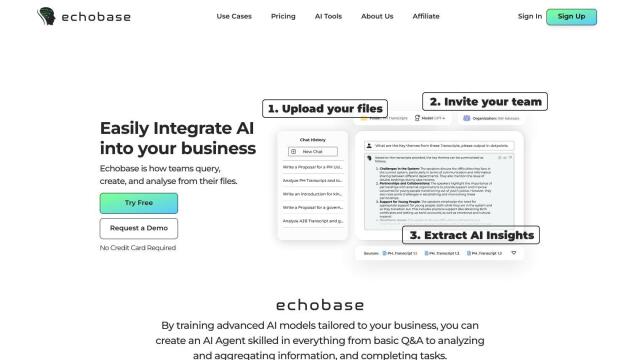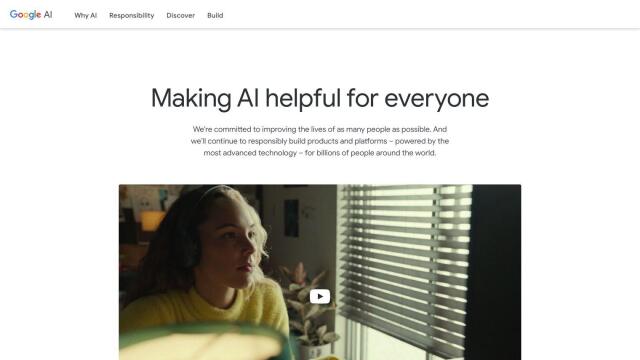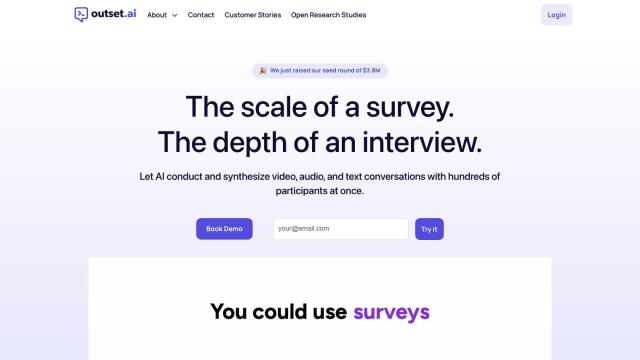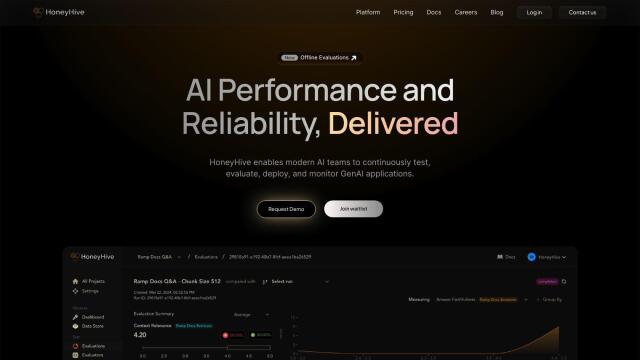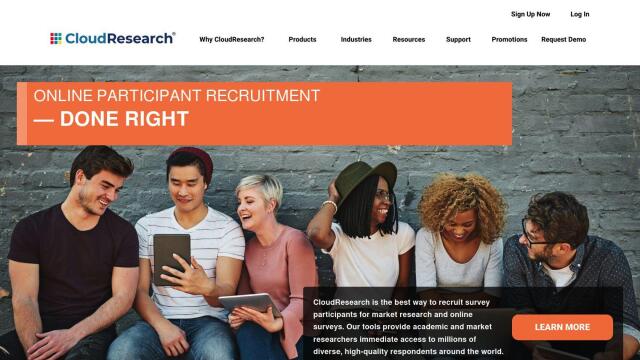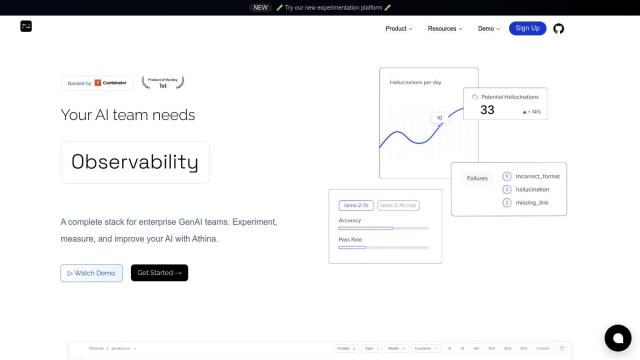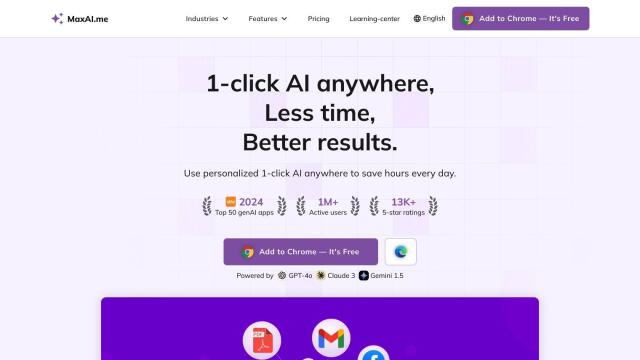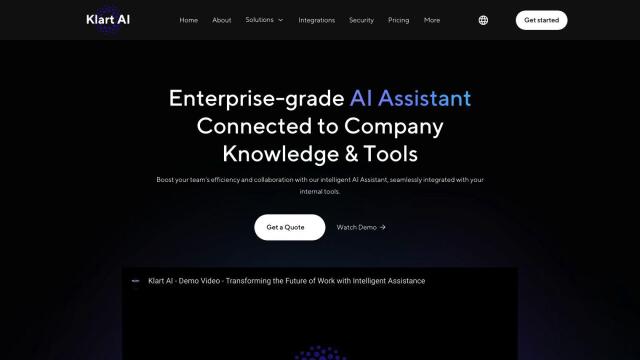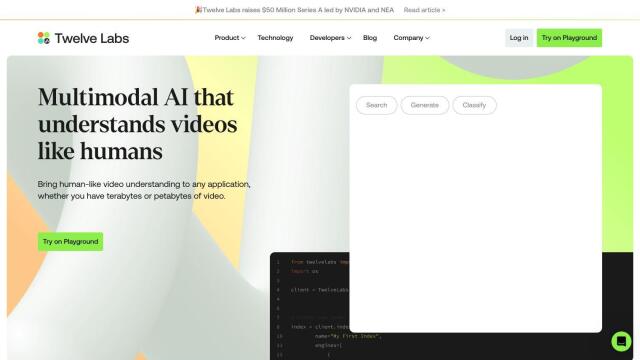Question: Can you recommend an AI-powered research tool that provides transparent and explainable results?
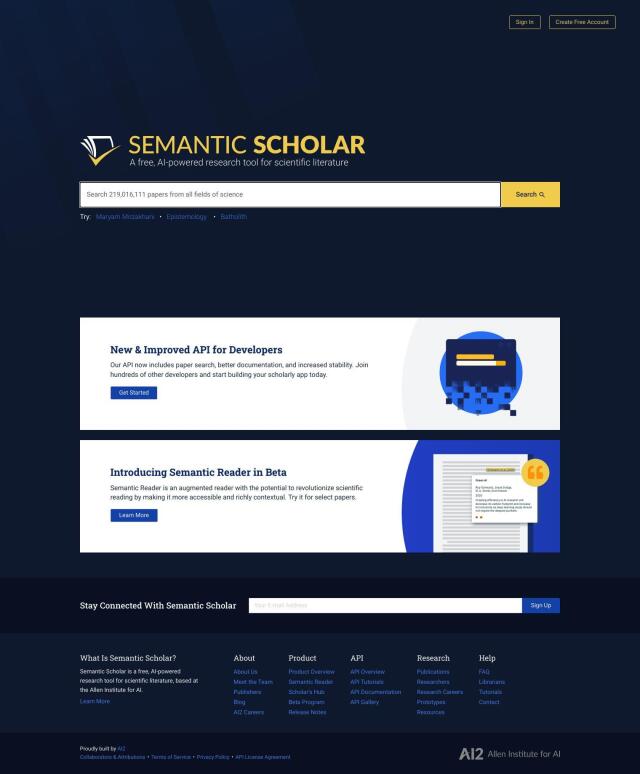
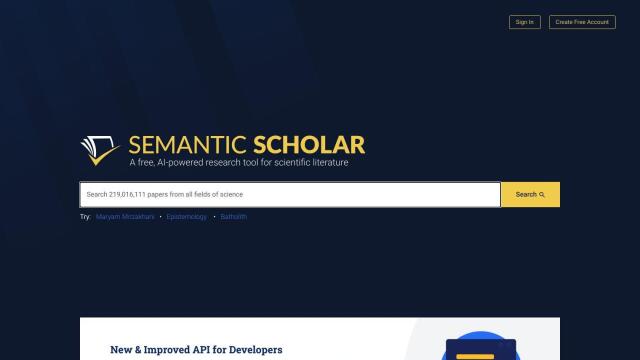
Semantic Scholar
If you want an AI-powered research tool that produces transparent and explainable results, Semantic Scholar is a great choice. This free service lets researchers search for and read relevant scientific papers in a database of more than 219 million papers across all scientific fields. It comes with powerful filters, summaries and AI-generated definitions and answers that let you quickly evaluate papers. And Semantic Scholar has tools for citations, organizing papers and setting up automated email alerts, all without a subscription.


Elicit
Another good option is Elicit, an AI research assistant designed to help you quickly find, summarize and extract data from academic papers. Elicit is particularly well-suited for empirical subjects like biomedicine and machine learning, and it can automate systematic reviews and meta-analyses. With basic, plus and enterprise versions, Elicit's results are based on language models trained with user feedback and task-specific training, so it's a good option for scholars.
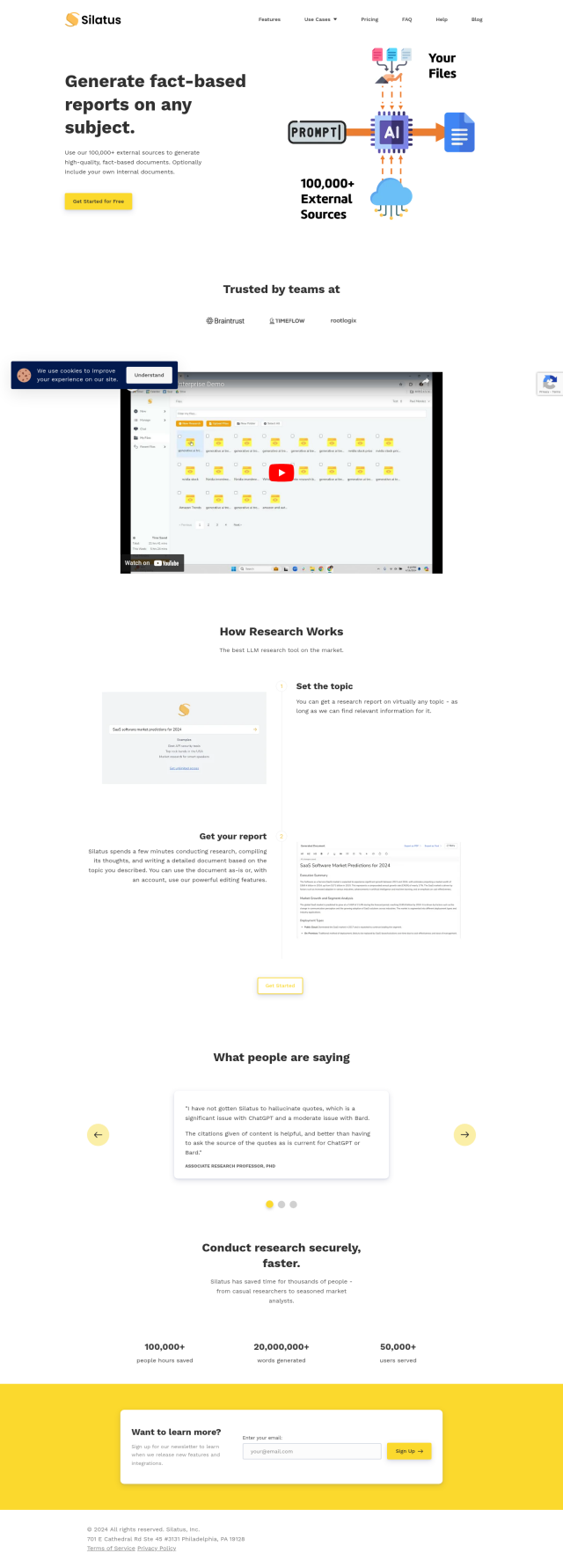
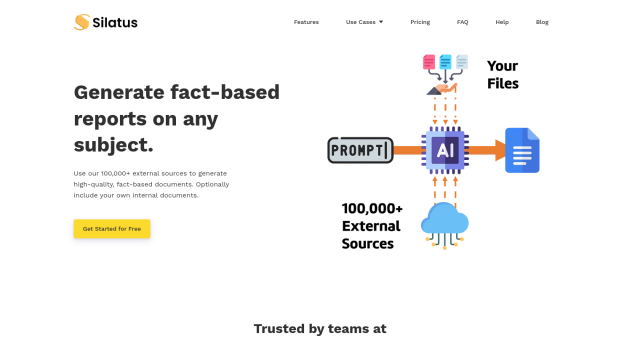
Silatus
For in-depth, fact-based reports, Silatus is a powerful AI-powered research tool. It aggregates information from more than 100,000 external sources to generate authoritative reports that can be customized to your needs. With flexible research queries, customizable templates and powerful automations, Silatus is designed to increase productivity and simplify research workflows. The tool is geared for professionals who need to generate detailed and accurate reports quickly.

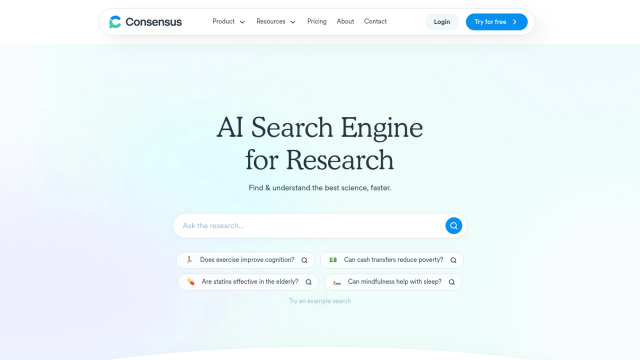
Consensus
Last, Consensus offers a broad research coverage of more than 200 million papers across all subject areas. It offers AI insights through Copilot and the Consensus Meter, which are both powered by OpenAI and proprietary large language models. With features like GPT-4 summaries, Study Snapshots and a Consensus Meter, Consensus can help you streamline literature reviews and validate research more quickly. Consensus is good for many professions, and it offers different pricing tiers to accommodate different needs.

